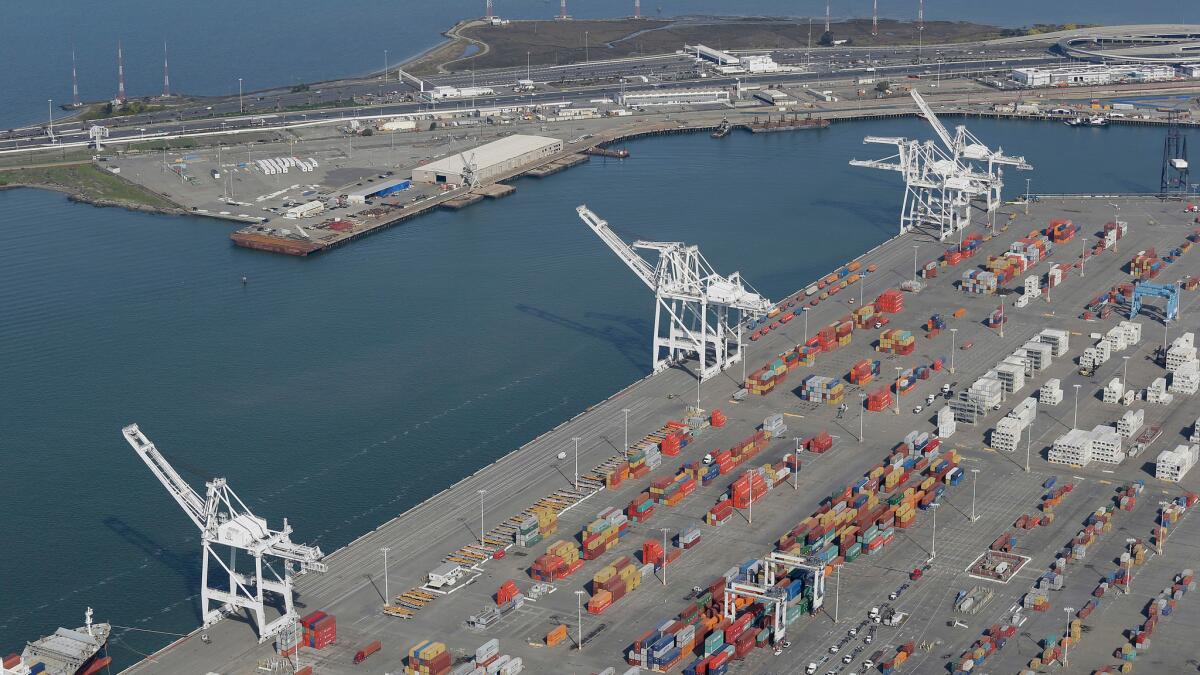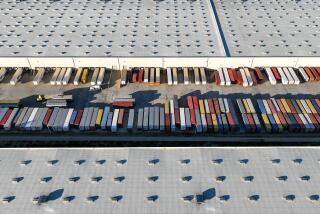Richmond bans coal, joining West Coast cities blocking export route to Asia

A critical route for American coal exports to Asia is drying up after yet another U.S. port city passed a law to bar the fuel from leaving its shores.
Lawmakers in Richmond, Calif., voted late Tuesday to impose a ban on coal, targeting a terminal that handles about a quarter of exports from the U.S. West Coast.
Richmond is joining other West Coast cities that have prohibited shipping the fossil fuel through their ports, choking off key routes to some of the only coal markets in the world still growing. As utilities burn less coal in the U.S., environmentalists and lawmakers see the ordinances barring exports as a way to both limit pollution from coal dust locally and reduce greenhouse gases globally.
“I’ve got bigger ambitions than just Richmond,” Mayor Tom Butt said in an interview. “I’d like to get rid of coal worldwide.”
The ordinance in Richmond targets a port operated by Levin-Richmond Terminal Corp. In 2018, the facility shipped almost 1 million metric tons of coal to Japan and South Korea. The legislation gives the port three years to stop coal shipments. The ordinance also includes petroleum coke, a byproduct of oil refining that’s another major product handled by the terminal.
Only a tiny portion of global coal trade is likely to be affected by the move. Exports from the U.S. accounted for just over 3% of Asia-Pacific’s total imports in 2018, with India and Japan the biggest buyers, according to the latest BP Statistical Review. The data also showed most American cargoes headed to Europe.
Levin-Richmond Terminal’s chief executive officer, Gary Levin, has said the law would put him out of business and has threatened to sue. He didn’t respond to phone inquiries.
The mayor had delayed a vote that had been expected last month to pursue an agreement with Levin that would head off litigation. But the two sides were unable to reach a resolution, Butt said.
The city of Oakland passed a law in 2016 barring coal exports. A federal judge later overturned the law, and the city and environmental groups have pursued the issue in an appeals court. In 2014, Oregon regulators denied a permit to a proposed coal-export terminal on the Columbia River.
“Communities are pushing back on toxic and polluting coal exports,” Minda Berbeco, director of the San Francisco Bay Chapter of the Sierra Club, said by email. “No one wants to live with coal dust coating their homes and cars.”
More to Read
Inside the business of entertainment
The Wide Shot brings you news, analysis and insights on everything from streaming wars to production — and what it all means for the future.
You may occasionally receive promotional content from the Los Angeles Times.









